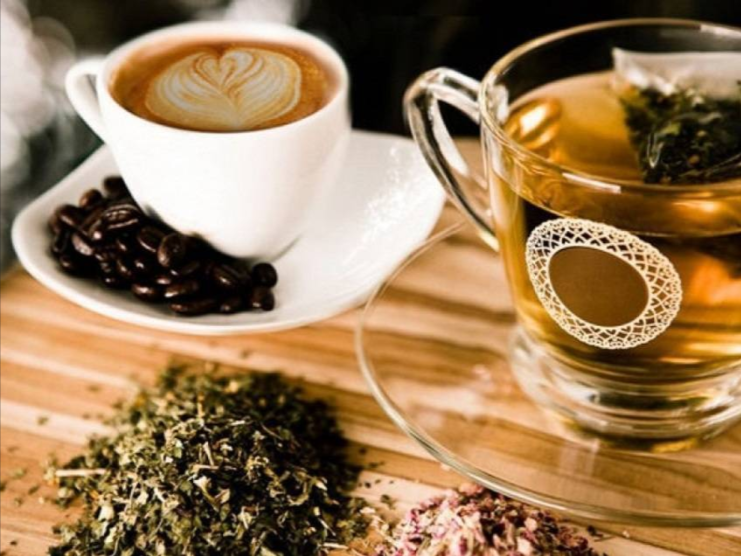In moderation, coffee and tea can be incredibly healthy. It is only when consumed in excess, that coffee and tea may have dangerous side effects.
Coffee and tea become increasingly popular beverage options among students
January 24, 2017
Controlling most functions of the body and mind, the nervous system is evidently one of the most vital systems in the body. Caffeine is a central nervous system stimulant digested daily by people all over the world. In other words, people turn to caffeine as a quick way to gain energy. Found in both coffee and tea, caffeine is a chemical that can most noticeably cause alertness in people and also cause anxiety, irritability, and drowsiness when withdrawn from them.
Every morning at Cherry Hill East High School, a significant amount of students can be found purchasing coffee from either of the cafeterias or snack carts posted around the school all throughout the school day. On the other hand, some students are completely unaware that East sells tea in cafeteria one, making it less likely to be purchased as opposed to coffee.
Served hot or cold with ice, both coffee and tea have been popular drinks around the world since they were discovered. Although tea predates coffee by thousands of years, is easier to make, and is remotely sold for cheaper than coffee, both beverages are in high demand and continue to be huge money-makers for the international market.
Tea is primarily made by infusing dried crushed leaves of tea plants into boiling water. Out of the several different types of tea, green tea is considered to have the most health benefits as it is packed with antioxidants and nutrients that improve the functions of the brain help one to lose weight, and provide protection from many diseases. Adversely, green tea can stain teeth gray.
The recommended maximum intake of tea is five cups per day. Although it has less caffeine than coffee, the high concentration of Oxalate in specifically iced tea is one of the key chemicals that lead to the formation of kidney stones. Kidney Stones are hard crystalline masses made of mineral material that are formed in the kidneys or the urinary tract and are very painful to pass.
Contrarily, Coffee is created from the roasted and ground bean-like seeds of a tropical shrub, and may also help one to lose weight, protect the body from diseases, and brighten one’s mood.
Accordingly, coffee can also permanently stain teeth yellow, can cause insomnia and restlessness, can negatively affect babies during pregnancy, and can raise levels of LDL or “bad” cholesterol. In addition, consuming roughly four cups of coffee a day appears to be safe for healthy adults on average, but drinking more can have its positives and negatives depending on the person.
Although both beverages share a number of the same advantages and disadvantages, they both also have their own individual gains and losses as well. Cherry Hill East along with many other schools will continue to sell them both to their students as usual and whether doing so is a good or bad idea is up to the consumer.
